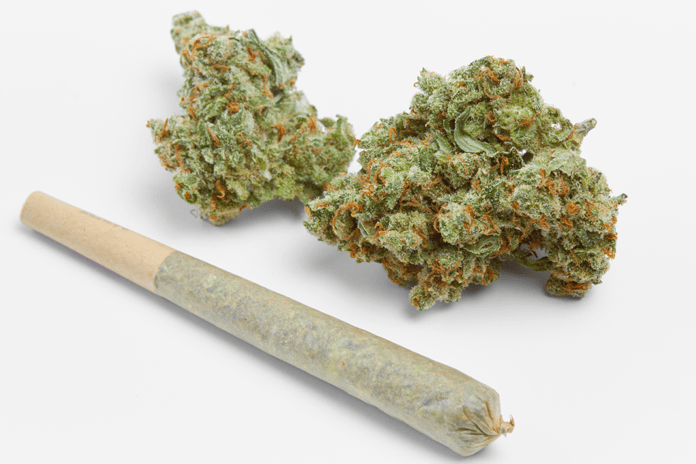Note: The study’s objective in this summary is on marijuana and the possible adverse effects. We realize that CBD has potential beneficial uses in dentistry and beyond; however, the benefits are not the objective of this research piece.
As more and more states in the U.S. legalize marijuana, either medically or recreationally, people feel more comfortable sharing information about its use. No matter how it is ingested, the products will go into your mouth and affect the microbiome inside. But what will it do? Does marijuana have a negative impact on our dental health?
In Self-reported Periodontitis in Cannabis Club Members in Montevideo, Uruguay: An Exploratory Study, researchers in Uruguay decided to study that very topic. Uruguay regulated the use of marijuana to the public in 2013, before most U.S. states had done so. In fact, one out of five young adults in the small South American country somehow ingests marijuana every day. It does cause someone to wonder just what if any, effects it had on oral health.
Self-Reported Study in Marijuana Users
Most legal marijuana smokers in Uruguay are part of special marijuana social clubs, and the researchers decided to concentrate on club members because they were most likely to smoke routinely and avidly. The researchers chose people who used every day and consumed a relatively large amount of marijuana in some form per month.
56 Uruguayans qualified to participate in the study and self-reported their dental issues. Most of the people studied were between 20-40 years of age, and at least 68% were male. 42% of the respondents reported that they did consume harder drugs at times, such as cocaine or opioids, and 90% consumed alcohol at least once in the past year.
Surprisingly, and awesomely, the number of reported tobacco smokers in the 50 people studied was much less than the average in the general population.
The majority of respondents reported smoking marijuana for more than ten years, putting them in the category of long-term exposure. The number of people reporting problems with gingivitis and periodontal disease was higher than in the average population, at 37% compared to just over 12% in the community. So, marijuana does negatively affect oral health, though how much is still up for debate and more study.
Researchers determined that marijuana use may bring on periodontitis at a much younger age than average. Basically, the more marijuana you ingest, and the younger it’s ingested, the worse the periodontitis affliction can be. In fact, these Uruguayan researchers suggest that the widespread, increased use of marijuana may be detrimental to our mouths in ways that we can’t even comprehend yet.
Marijuana’s Effects on the Oral Cavity
Marijuana causes xerostomia, a fact that we can learn from any movie or TV show that portrays marijuana smokers. Xerostomia causes changes in the makeup of saliva and decreases the flow of saliva. Xerostomia itself can lead to caries, acid erosion, dysphagia, and oral candidiasis. 20% of marijuana smokers reported noticeable dental problems. 28% noticed that some of their teeth don’t look as healthy as they should.
The tendency for marijuana smokers to clean interdentally isn’t as clear. 30% of respondents cleaned interdentally every single day, and 30% reported doing it maybe once a week. 38% reported never using mouthwash, while only 20% did so every day.
Gingivitis and periodontal diseases are some of the most prevalent diseases in the world, but research suggests that when it comes to marijuana-induced gingivitis and periodontal disease, the severity of the disease is most likely dose-dependent.
Our Responsibility
Our responsibility as dental caregivers, now that people are more comfortable sharing their extracurricular activities, is to identify marijuana users and emphasize the importance of routine dental visits and preventive care, twice-daily brushing, the necessity of cleaning interdentally, using mouthwash, and dietary counseling. Recommendations of dry mouth products and fluoride use may be helpful. If they know that they are at a higher risk for developing periodontal disease and xerostomia, they may do more to prevent them.
It doesn’t look like the use of marijuana is going away anytime soon, so a targeted routine may be the most effective tool for optimal oral health, which leads to overall health. And that information should come from us, their trusted dental caregivers.











